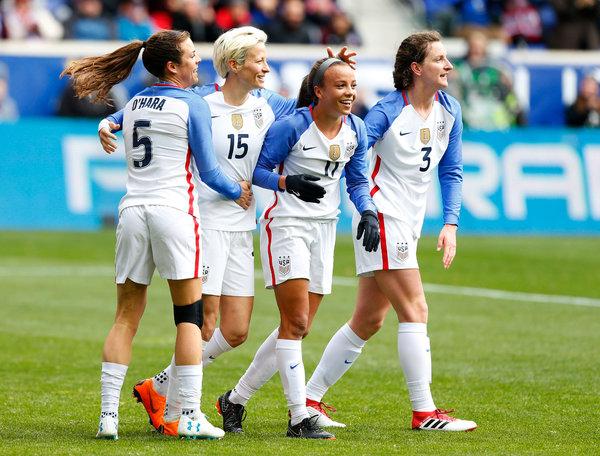By Aaron Miller-
The U.S world champion women’s national soccer team have filed a gender discrimination lawsuit against the US Soccer Federation today, just months before the team plays in the Women’s World Cup.
The lawsuit, filed in United States District Court in Los Angeles is seen by many to be a statement to mark International Women’s Day, giving women a special opportunity to make important statements and make their mark. The 28 players allege that the federation and the governing body for soccer in the United States have subjected them to years of “institutionalised gender discrimination.” The issues, the athletes said, affected not only their paychecks but also where they played and how often, how they trained, the medical treatment and coaching they received, and even how they travelled to matches.
Players named in the law suit include Megan Rapinoe, Alex Morgan and Carli Lloyd . They seek to represent any current or former players from the women’s national team since 4 Feb, 2015.The players are seeking equal pay and treatment, in addition to damages including back pay. The complaint echoes one made only two years ago.
A complaint was made in 2016 with the federal Equal Employment Opportunity Commission alleging wage discrimination by the federation. The players said their male counterparts in the men’s team earned far more than they did, even though they were performing the same sport. A statement conveying their complaint read:
“Each of us is extremely proud to wear the United States jersey, and we also take seriously the responsibility that comes with that. We believe that fighting for gender equality in sports is a part of that responsibility. As players, we deserved to be paid equally for our work, regardless of our gender,” forward Alex Morgan said in a prepared statement
In 2016, five US players filed a wage-discrimination complaint against the federation which has not resulted in noticeable action. Many steps are being taken to highlight the plight of women around the world. Contractual negotiations eventually led to a collective bargaining agreement in 2017 that runs through 2021.
The players received raises in base pay and bonuses as well as better provisions for travel and accommodations, including increased per diems. They were also afforded some control of certain licensing and marketing rights. Specific details about the deal were not disclosed.
Today, the International Rescue Committee (IRC) identified the five most dangerous places to be an adolescent girl in an analysis published on Thursday. Indicators such as child marriage, child labor, rates of violence and adolescent birth rates helped the group determine the final list: Niger, Yemen, Bangladesh, South Sudan and the Central African Republic (CAR).
Nicole Behnam, senior director of IRC’s Violence Protection and Response unit, said the analysis showed a need for humanitarian aid suited to the unique needs of adolescent girls.
“They are amongst the most marginalised populations on earth, and efforts to support and empower them are lifesaving, not optional,” Benham said in a statement. “Until we achieve true gender equality, young girls will suffer the most.”
Image: New York Times




